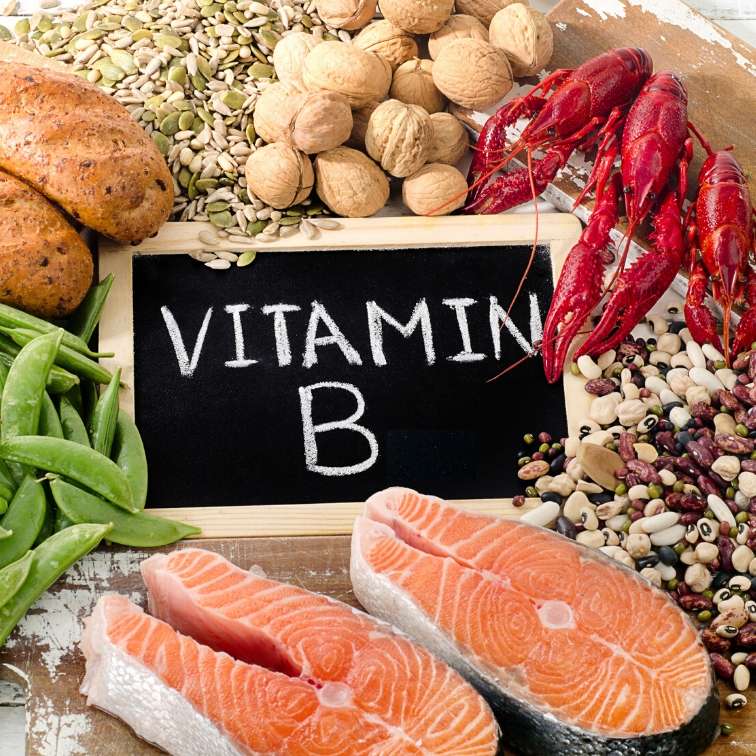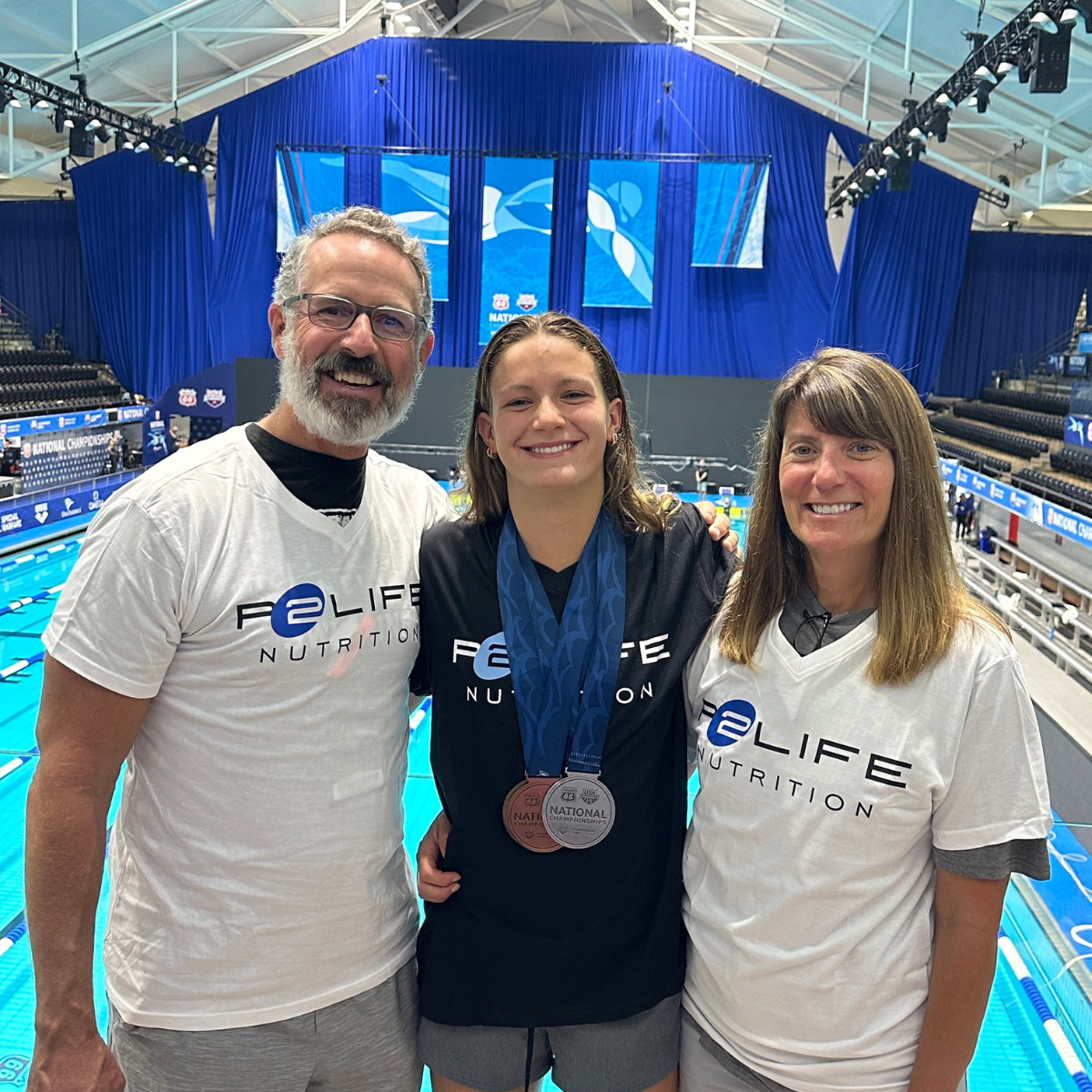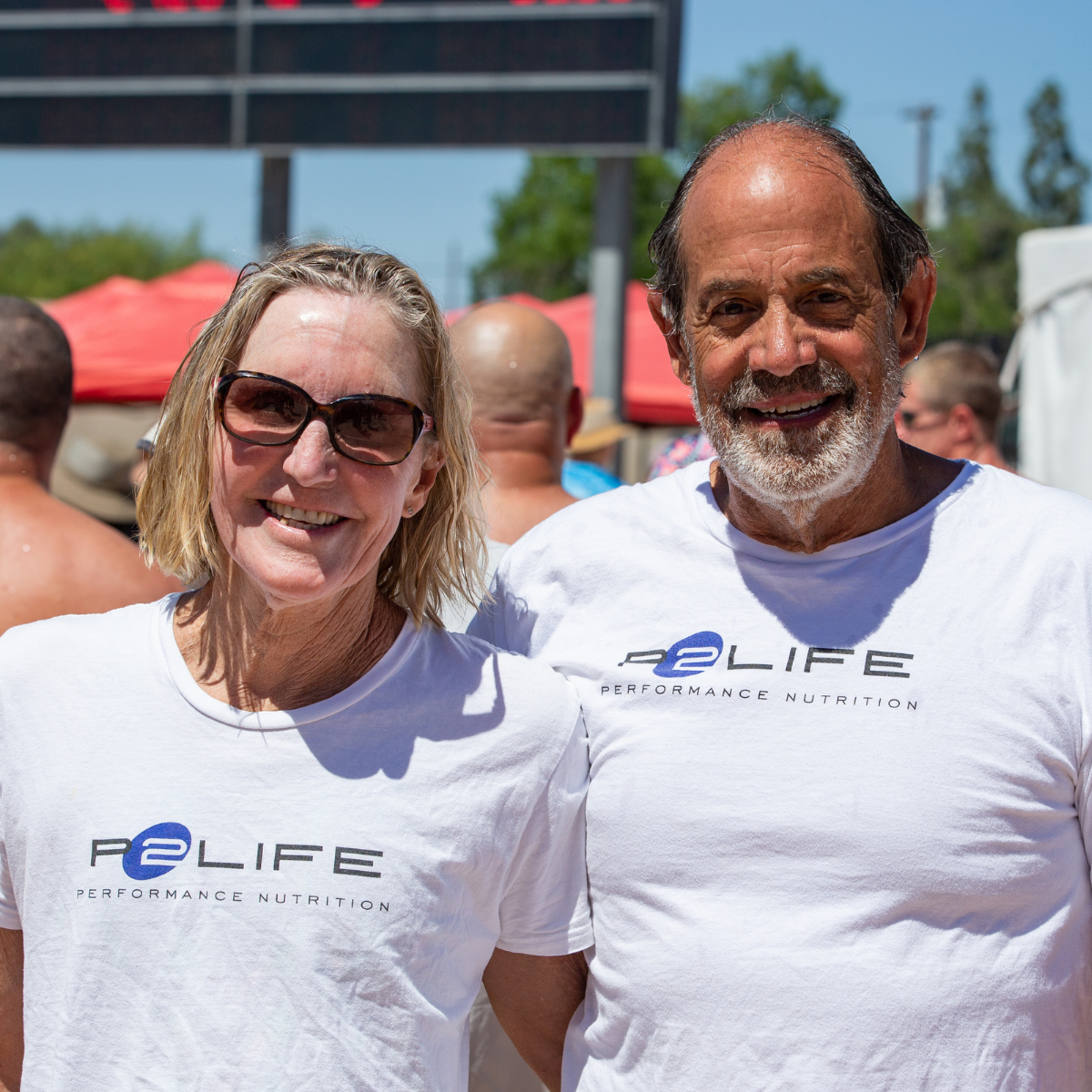
Vitamin B Complex and Why It's Important for Swimmers
There are certain nutrients, vitamins, and minerals that we all need for our bodies to function properly. And when you're putting your body through strenuous training and exercise, as most swimmers do, it's even more critical that you are supplying your body with everything it needs. One of these vitamins is the vitamin B complex, a group of 8 B vitamins that include thiamine (vitamin B1), riboflavin (vitamin B2), pyridoxine (vitamin B6), and cyanocobalamin (vitamin B12). How can each of these help you have a winning performance?
B1 (Thiamine)
B1 helps the body make healthy new cells. It’s often called an anti-stress vitamin because of its ability to protect the immune system. And stress is something that swimmers definitely deal with the days leading up to an important meet. When carbo-loading (either to prepare for a big race or just because pizza tastes that good), studies say this vitamin is necessary to help break down those simple carbohydrates.
Get it from: Whole grains, peanuts, beans, spinach, kale, blackstrap molasses and wheat germ
B2 (Riboflavin)
This B vitamin works as an antioxidant to help fight free radicals (particles in the body that damage cells) and may prevent early aging and the development of heart disease. Riboflavin is also important for red blood cell production, which is necessary for transporting oxygen throughout the body. Several studies suggest B2 can help stave off migraines, but more research is needed to be sure. And be careful, while sunlight does the body good, ultraviolet light reduces the riboflavin content in food sources. Milk, for instance, is best purchased in opaque containers in order to keep this vitamin from breaking down.
Get it from: Almonds, wild rice, milk, yogurt, eggs, Brussels sprouts, spinach and soybeans
B5 (Pantothenic Acid)
Small amounts of vitamin B5 are found in just about every food group — its name even says so. Pantothenic comes from the Greek word pantothen, meaning “from everywhere.” In addition to breaking down fats and carbs for energy
Get it from: Avocados, yogurt, eggs, meat and legumes
B6 (Pyridoxine)
Along with fellow B vitamins 12 and 9, B6 helps regulate levels of the amino acid homocysteine (associated with heart disease). Pyridoxine is a major player in mood and sleep patterns because it helps the body produce serotonin, melatonin and norepinephrine, a stress hormone. Some studies suggest vitamin B6 can reduce inflammation for people with conditions like rheumatoid arthritis.
Get it from: Chicken, turkey, tuna, salmon, lentils, sunflower seeds, cheese, brown rice and carrots
B12 (Cobalamin)
This B vitamin is a total team player. Cobalamin works with vitamin B9 to produce red blood cells and help iron do its job: create the oxygen-carrying protein, hemoglobin. Since vitamin B12 is only found in animal products, studies show higher rates of non-meat eaters with a deficiency. “But unless you are a strict vegan or vegetarian,“it’s not hard to get enough of this vitamin in your diet.” For those who are deficient, it may be necessary to supplement the diet with B12. Helps you stay mentally sharp. a deficiency of vitamin B12 can cause symptoms ranging from mild fatigue to severe exhaustion. This nutrient is a key player in the burning of fats and carbohydrates for energy
Get it from: Fish, shellfish, dairy, eggs, beef and pork

Why are they important for swimmers?
Individual B-vitamin requirements vary and may depend upon the type and intensity of exercise, the amount of nutrients lost through sweat, and urine, and individual differences in diet.
Researchers at Oregon State University found that athletes who lack B-vitamins have reduced high-intensity exercise performance and are less able to repair damaged muscles or build muscle mass than their peers who eat a diet rich with B-vitamins. The study results were published in the International Journal of Sports Nutrition and Exercise Metabolism.
Current evidence supports the theory that athletes, and those who exercise frequently or at a high intensity may have an increased need for riboflavin and vitamin B-6
How do I know if I am getting enough?
According to the researchers, the USRDA (the United States Recommended Daily Allowance) for B-vitamin intake may be inadequate for athletes. They go on to say that those most at risk for the B-vitamin deficiencies include athletes who are limiting calories or have specialized, consistent or restricted eating plans.
Female athletes, in particular, may be more prone to B-vitamin deficiencies simple based upon the reduced number of calories many women athletes consume. Male athletes tend to eat a lot of calories and a lot of variety of foods, but more female athletes tend to monitor their nutrition more closely and often fail to eat enough calories, or enough variety of food to replace all the nutrients they need to rebuild muscles and aid recovery.
Although short-term marginal deficiencies of B vitamins have not been observed to impact performance, severe deficiency of vitamin B12, folate, or both may result in anemia and reduced endurance performance. Therefore, it is important that athletes consume adequate amounts of these micronutrients to support their efforts for optimal performance and health.
Sources:
http://ajcn.nutrition.org/content/ 72/2/598s.full
http://www.drwhitaker.com/ nutrient-spotlight-benefits-of-b- vitamins/
http://sportsmedicine.about.com/ od/sportsnutrition/a/ B_Vitamins.htm
http://www.medscape.com/ viewarticle/717046_8










1 comment
what about the dosage requirements for swimmers?
Ganga Gharty Chhetri
Leave a comment
This site is protected by hCaptcha and the hCaptcha Privacy Policy and Terms of Service apply.